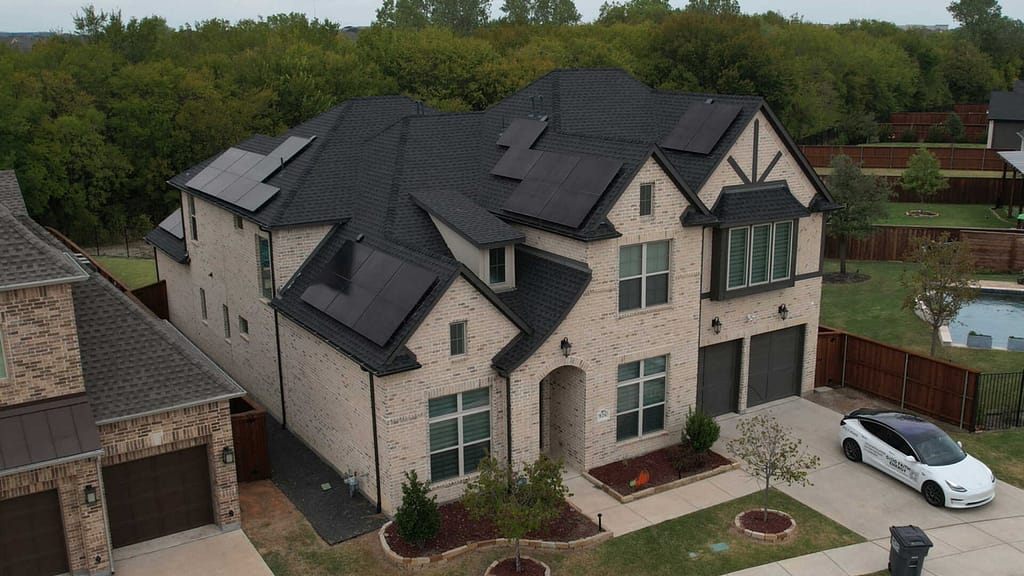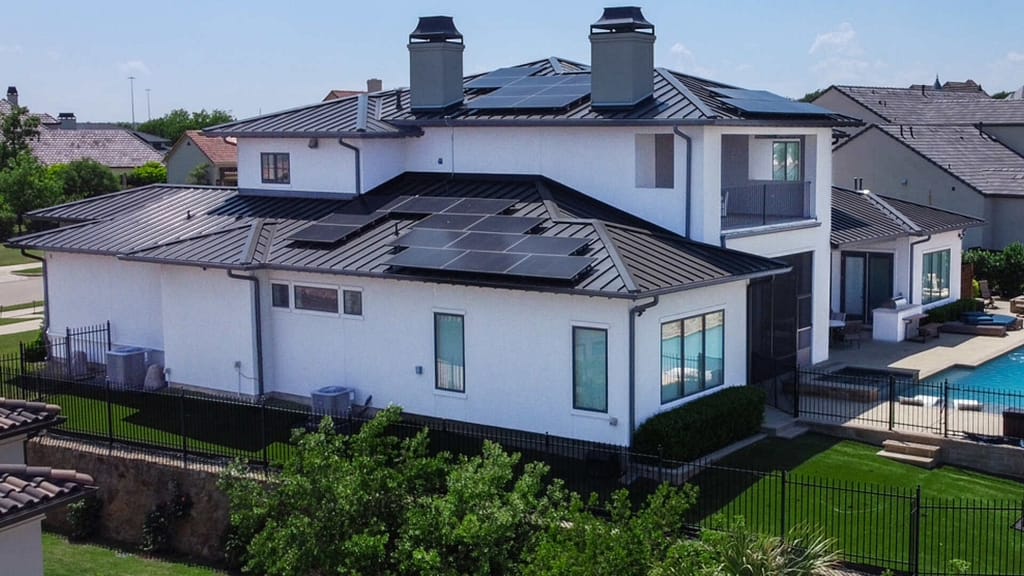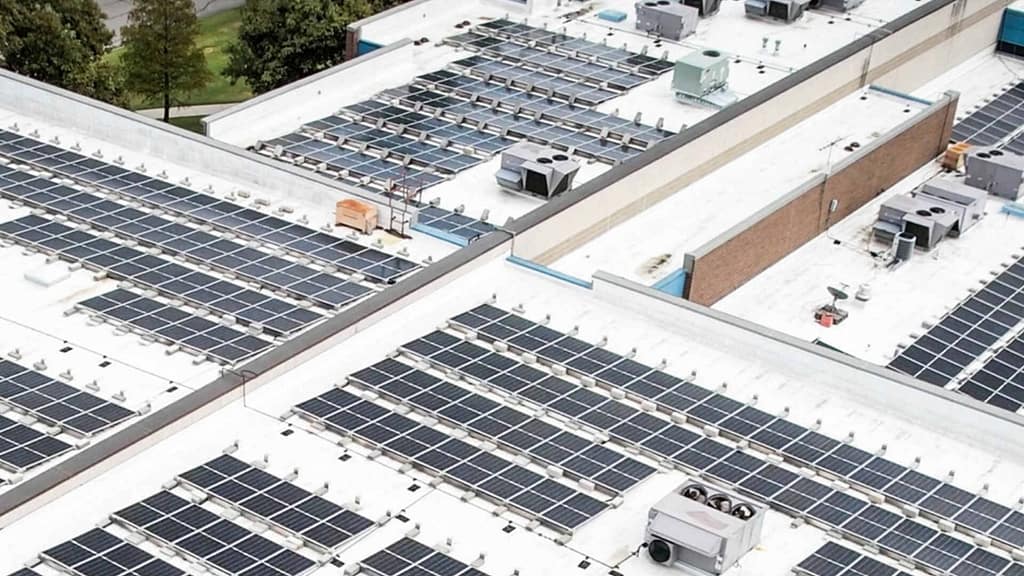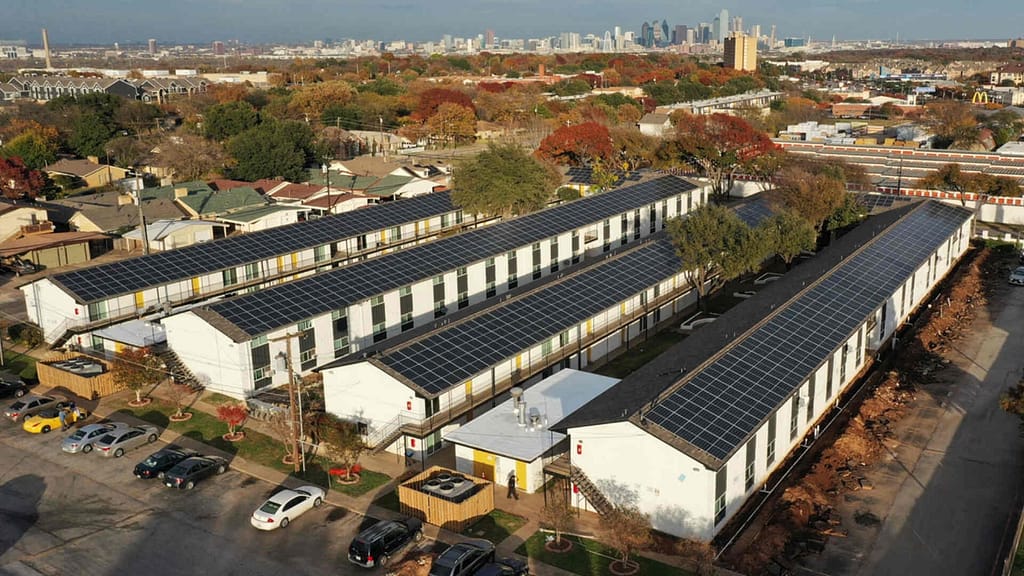Solar energy has become an increasingly popular renewable energy source for residential and commercial buildings. However, the infrastructure requirements for using solar energy differ between residential and commercial systems due to the varying energy needs and building characteristics. We will explore the differences in infrastructure requirements for using solar energy between residential and commercial solar systems.
Residential Solar Systems Infrastructure Requirements

For residential solar systems, Good Faith Energy provides services to the Dallas-Fort Worth Metroplex and Austin, Texas. We design residential solar systems to meet the energy needs of a single-family home and they are typically smaller in scale than commercial systems. The infrastructure requirements for residential solar systems include the following:
- Roof Space: Residential solar systems require sufficient roof space to accommodate the solar panels. The roof should be structurally sound and free from shading to ensure maximum energy production.
- Solar Panels: The solar panels for residential systems are usually smaller, with a capacity of around 5kW to 10kW. Mounting systems typically attach directly to the roof to install them. View our solar panel page for more information.
- Inverter and Electrical Equipment: Residential solar systems use an inverter and electrical equipment to convert the DC electricity generated by the solar panels into AC electricity that powers the home. The inverter and electrical equipment are usually installed in a garage or basement.
- Battery Storage (Optional): Residential solar systems may use battery storage to store excess solar energy for later use or to provide backup power during power outages. View our battery backup page for more information
- Electrical Interconnection: The residential solar system must be interconnected with the home’s electrical system and the local utility grid. The interconnection requires electrical equipment such as switches, circuit breakers, and electrical meters.
- Monitoring and Control Systems: Monitoring and control systems are necessary to monitor the performance of the solar energy system and optimize its efficiency. Most residential solar systems come with monitoring software that enables homeowners to monitor their energy usage and production.

Commercial Solar Systems Infrastructure Requirements

For commercial solar systems, Good Faith Energy also provides services to the Dallas Fort Worth metroplex and Austin, Texas. Commercial solar systems typically require a larger scale compared to residential systems and necessitate a different infrastructure to meet the energy needs of commercial buildings. The infrastructure requirements for commercial solar systems include:
- Roof or Ground Space: Commercial solar systems require a significant amount of roof or ground space to accommodate the solar panels. The roof or ground space must be large enough to accommodate the solar panels and provide the necessary access for installation, maintenance, and repairs.
- Structural Assessment: A structural assessment is necessary to determine if the building can support the weight of the solar panels and mounting systems. The assessment will consider factors such as the building’s age, structural integrity, and roof or ground condition.
- Solar Panels and Mounting Systems: The building’s energy requirements, available space, and local climate conditions determine the selection of solar panels and mounting systems. Solar companies install the solar panels and mounting systems to maximize energy production and minimize shading.
- Inverter and Electrical Equipment: An inverter and electrical equipment must be installed to convert the DC electricity generated by the solar panels into usable AC electricity. The inverter and electrical equipment need to be the appropriate size for the the building’s electrical load.
- Battery Storage (Optional): Commercial buildings may opt to install battery storage systems to store excess solar energy for later use or to provide backup power during power outages. View our battery backup page to view options available for commercial buildings
- Electrical Interconnection: The solar energy system must be interconnected with the building’s electrical system and the local utility grid. The interconnection requires electrical equipment such as switches, circuit breakers, and electrical meters.
- Monitoring and Control Systems: Monitoring and control systems are necessary to monitor the performance of the solar energy system and optimize its efficiency. Commercial buildings may also require a building energy management system. This helps to monitor and control the overall energy use of the building.

Looking to install solar for your home or business? Contact Good Faith Energy today!
If you have interest in switching to solar energy for your home or business, Good Faith Energy is a company you can trust. We provide high-quality solar energy solutions for both residential and commercial buildings, with a focus on sustainability and customer satisfaction. Don’t wait any longer to make the switch to clean, renewable energy. Contact us today to learn more about our services. We can help you reduce your carbon footprint while saving money on your energy bills. Together, let’s work towards a brighter, more sustainable future.
Fact checked by Jacob Petrosky – 4/26/2024